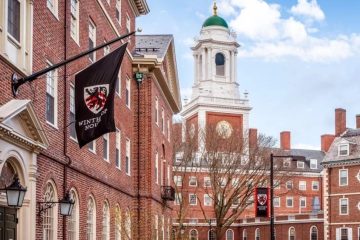JPMorgan Chase Is Investing $40 Million In Chicago’s Struggling Neighborhoods

JPMorgan Chase plans to invest some $ 40 million over three years in small business assistance, real estate development and jobs training programs in Chicago, to help rebuild some of the city’s most marginalized neighborhoods.
The initiative is the bank’s biggest expansion to date of an approach to economic recovery that it launched in Detroit in 2014, with encouraging results so far. Fortune described the bank’s “Invested in Detroit” program in a cover story in the magazine’s current issue.
JPMorgan Chase’s approach, which it refers to as “philanthropic investment,” involves working with nonprofits to channel financing to developers, entrepreneurs and homeowners who struggle to get bank loans; the bank also funds programs that help workers who don’t have college degrees train for “middle skill” jobs that pay better wages.
In the earlier story, CEO Jamie Dimon told Fortune, “We could do Detroit in three or four places a year, and we could do a ‘Detroit lite’ in another 10.”
The Chicago effort may look slightly “lite” compared to Detroit, where the bank plans to commit $ 150 million over five years. But Chicago is the first market after Detroit where the bank will be tackling skills training, business expansion, and real estate development in struggling neighborhoods in a simultaneous, coordinated way.
Chicago’s overall economic troubles pale beside Detroit’s. Still, the city’s South and West sides have struggled for decades with some of the same problems—including the decline of the manufacturing sector and the effects of “redlining” policies by banks that effectively kept minority homeowners and minority-owned businesses from getting loans. Unemployment in some of the hardest-hit Chicago neighborhoods is above 30%, according to Census Bureau data, and Chicago’s endemic gun violence is most severe in some of the neighborhoods where unemployment is highest.
JPMorgan Chase’s rebuilding strategy relies heavily on finding strong local partners, ideally nonprofits that have good relationships with local business and political leaders. “If they’re collaborating well already, then we can focus on supporting them with the expertise that we bring to the table,” says Peter Scher, the bank’s head of corporate responsibility.
JPMorgan Chase is No. 1 on this year’s Fortune Change the World List. See the full list here.
One prototypical partner in Chicago is BSD Industries, a small manufacturing facility in Woodlawn, a South Side neighborhood with a strong middle-class core that lost ground during the Great Recession. BSD aims to provide robotics training and other job- and life-skills education to about 90 workers a year through a 13-month, paid training program. The facility is operated by the Brazier Foundation, a South Side-based nonprofit with an emphasis on community-building.
BSD makes cutlery out of “green” plastics; if all goes as planned, it’ll start shipping products to its first customers in October, says Trista Bonds, vice president of engineering and manufacturing operations. A team of Chase executives from the bank’s “Service Corps” helped BSD create a financial model and do market research. Last month, JPMorgan Chase invested $ 500,000 in BSD Industries.
Bonds, an Army veteran and former engineer at Ford Motor Co., pitched the BSD “earn and learn” concept to the Brazier Foundation four years ago, and launched classes there in 2016 with help from a grant from JPMorgan Chase. Bonds was inspired, fittingly enough, by vocational programs she encountered when she worked in Detroit. “It was just so amazing; they were empowering people who needed that help,” Bonds says. “It’s great to be able to build something like that here.”
JPMorgan Chase and some of its nonprofit partners planned to unveil its new initiative later Thursday at a roundtable event at the Instituto Health Sciences Career Academy, a charter high school in a heavily Hispanic neighborhood on Chicago’s West Side. The academy has a college-prep emphasis, but also trains students who are less likely to go to college for entry-level positions in the health-care industry.
The school’s approach is a good fit with the bank’s Detroit model: JPMorgan Chase is working on job-training curriculums in about 20 high schools in that city.








